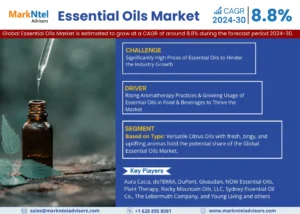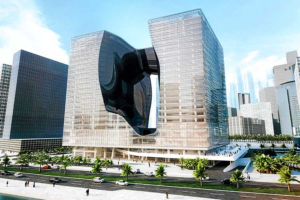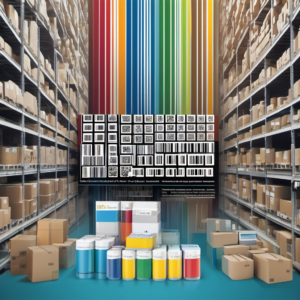
In today’s dynamic and fast-paced food industry, the integration of technology has become essential for success. Restaurant software plays a pivotal role in streamlining operations, enhancing customer experiences, and boosting overall efficiency. However, not all restaurant software is created equal. To truly benefit from these technological advancements, it’s crucial to choose software that encompasses the must-have features necessary for a successful food business. This article will delve into the essential features that any restaurant software should offer to ensure your establishment thrives in the competitive market.
1. Point of Sale (POS) System
Key Capabilities:
- Order Management: A robust POS system should streamline order-taking processes, allowing servers to input orders quickly and accurately. This reduces the likelihood of errors and ensures that orders are communicated to the kitchen efficiently.
- Payment Processing: The software should support multiple payment methods, including credit/debit cards, mobile payments, and cash. Integration with payment processors should ensure secure transactions and quick payment processing.
- Sales Reporting: Detailed sales reports are crucial for tracking daily transactions, peak hours, and best-selling items. This data helps in making informed business decisions.
A reliable POS system forms the backbone of any restaurant operation. It simplifies transactions, improves order accuracy, and provides valuable insights into sales trends.
2. Inventory Management
Key Capabilities:
- Real-Time Tracking: The software should offer real-time tracking of inventory levels, alerting staff when items are running low. This helps in avoiding stockouts and overstocking.
- Supplier Management: Integration with suppliers allows for automated ordering and tracking of deliveries. This ensures that the kitchen always has the necessary ingredients.
- Waste Management: By tracking usage and spoilage, the software can help minimize waste, thus reducing costs and promoting sustainability.
Effective inventory management is critical for controlling costs and ensuring that the restaurant runs smoothly. With automated tracking and management, restaurants can maintain optimal stock levels and reduce waste.
3. Customer Relationship Management (CRM)
Key Capabilities:
- Customer Profiles: The CRM should store detailed customer information, including contact details, order history, and preferences. This data can be used to personalize service and marketing efforts.
- Loyalty Programs: Implementing loyalty programs helps in retaining customers. The software should automate these programs, allowing customers to earn and redeem points seamlessly.
- Feedback Management: Collecting and analyzing customer feedback is vital for improving service. The CRM should facilitate easy feedback collection and provide insights into customer satisfaction.
A robust CRM system helps build strong relationships with customers, driving repeat business and enhancing customer loyalty through personalized experiences and targeted marketing.
4. Online Ordering and Delivery Integration
Key Capabilities:
- Seamless Ordering: The software should integrate with online ordering platforms, allowing customers to place orders directly through the restaurant’s website or app.
- Delivery Management: Efficient delivery management features ensure that online orders are tracked and delivered on time. This includes assigning drivers, tracking deliveries, and providing customers with real-time updates.
- Menu Management: The software should allow for easy updating of the online menu, reflecting real-time availability and special offers.
With the growing popularity of online ordering and delivery, it is essential for restaurant software to support these services. This expands the restaurant’s reach and provides customers with a convenient dining option.
5. Table Management
Key Capabilities:
- Reservation System: A good reservation system allows customers to book tables online, reducing wait times and ensuring better management of dining space.
- Floor Plan Visualization: Visualizing the restaurant’s floor plan helps in efficiently managing table assignments and rotations.
- Waitlist Management: Managing waitlists digitally ensures that customers are informed of their wait time and are seated promptly when a table becomes available.
Efficient table management enhances the dining experience by minimizing wait times and optimizing the use of available space, thereby increasing customer satisfaction and turnover rates.
6. Employee Management
Key Capabilities:
- Scheduling: The software should simplify staff scheduling, allowing managers to create, adjust, and share schedules easily. It should also enable employees to view their shifts and request time off.
- Time Tracking: Accurate time tracking features ensure that employees’ work hours are recorded correctly, facilitating payroll processing.
- Performance Monitoring: Tracking employee performance metrics such as sales, customer feedback, and order accuracy helps in identifying top performers and areas needing improvement.
Effective employee management ensures that the restaurant is adequately staffed at all times, improving service quality and operational efficiency.
7. Comprehensive Reporting and Analytics
Key Capabilities:
- Sales Analytics: Detailed sales reports provide insights into daily revenue, peak hours, and best-selling items.
- Customer Insights: Understanding customer preferences and behavior helps in tailoring marketing efforts and improving service.
- Operational Efficiency: Reports on inventory usage, employee performance, and table turnover rates help in identifying inefficiencies and areas for improvement.
Access to comprehensive reporting and analytics is crucial for making informed business decisions, optimizing operations, and driving growth.
8. Marketing and Promotions
Key Capabilities:
- Campaign Management: The software should enable the creation and management of marketing campaigns, including email marketing, social media promotions, and special offers.
- Targeted Marketing: Leveraging customer data, the software should facilitate targeted marketing efforts, ensuring that promotions reach the right audience.
- Event Management: Organizing events such as themed nights or special dinners can drive customer engagement. The software should support event planning and management.
Effective marketing features help in attracting new customers and retaining existing ones, driving sales and enhancing the restaurant’s brand.
9. Security Features
Key Capabilities:
- Data Encryption: Ensuring that customer and financial data is encrypted protects against cyber threats.
- Access Controls: Implementing access controls ensures that only authorized personnel can access sensitive information.
- Compliance: The software should help the restaurant comply with industry regulations, including health and safety standards and payment processing guidelines.
Robust security features protect sensitive data and ensure that the restaurant complies with industry regulations, safeguarding both the business and its customers.
10. Mobile Compatibility
Key Capabilities:
- Mobile POS: The software should support mobile POS systems, allowing servers to take orders and process payments at the table.
- Management Apps: Mobile apps for managers enable them to monitor operations, view reports, and manage staff remotely.
- Customer Apps: Offering a mobile app for customers enhances their experience by providing a convenient platform for online ordering, reservations, and loyalty programs.
With the increasing reliance on mobile technology, it is essential for restaurant software to offer mobile compatibility, providing convenience for both staff and customers.
11. Customization and Scalability
Key Capabilities:
- Customizable Features: The software should be customizable to meet the specific needs of the restaurant, including menu customization, pricing adjustments, and layout configurations.
- Scalable Solutions: As the restaurant grows, the software should scale accordingly, supporting additional features, higher transaction volumes, and multiple locations.
Customizable and scalable software ensures that the restaurant can adapt to changing needs and grow without facing operational constraints.
Conclusion
Choosing the right restaurant software is a critical decision that can significantly impact the success of your food business. The essential features discussed in this article—POS system, inventory management, CRM, online ordering and delivery integration, table management, employee management, comprehensive reporting and analytics, marketing and promotions, security features, mobile compatibility, and customization and scalability—are crucial for streamlining operations, enhancing customer experiences, and driving growth.
Investing in software that encompasses these must-have features not only optimizes day-to-day operations but also provides the tools necessary for long-term success. By leveraging the power of advanced restaurant software, you can ensure that your establishment stays competitive, meets customer expectations, and achieves its full potential in the dynamic food industry.


























My brother suggested I might like this blog. He was entirely right.
This post truly made my day. You cann’t imagine simply how much
time I had spent for this information! Thanks!
Also visit my webpage :: 免费vpn安卓
I blog frequently and I truly appreciate your information. This
article has really peaked my interest. I will bookmark your website and keep checking
for new information about once a week. I opted in for your
RSS feed too.
This is my first time pay a quick visit at here and i am really pleassant
to read all at one place.
Also visit my web-site: is tonic greens legit